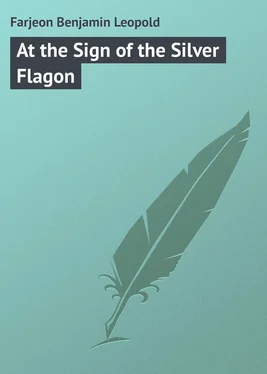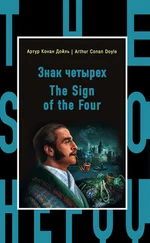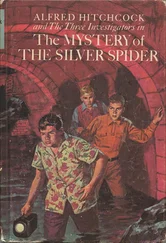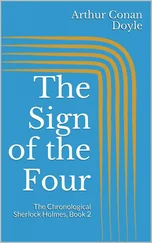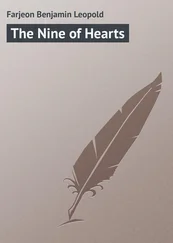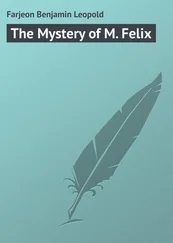Benjamin Farjeon - At the Sign of the Silver Flagon
Здесь есть возможность читать онлайн «Benjamin Farjeon - At the Sign of the Silver Flagon» — ознакомительный отрывок электронной книги совершенно бесплатно, а после прочтения отрывка купить полную версию. В некоторых случаях можно слушать аудио, скачать через торрент в формате fb2 и присутствует краткое содержание. Жанр: foreign_prose, на английском языке. Описание произведения, (предисловие) а так же отзывы посетителей доступны на портале библиотеки ЛибКат.
- Название:At the Sign of the Silver Flagon
- Автор:
- Жанр:
- Год:неизвестен
- ISBN:нет данных
- Рейтинг книги:5 / 5. Голосов: 1
-
Избранное:Добавить в избранное
- Отзывы:
-
Ваша оценка:
- 100
- 1
- 2
- 3
- 4
- 5
At the Sign of the Silver Flagon: краткое содержание, описание и аннотация
Предлагаем к чтению аннотацию, описание, краткое содержание или предисловие (зависит от того, что написал сам автор книги «At the Sign of the Silver Flagon»). Если вы не нашли необходимую информацию о книге — напишите в комментариях, мы постараемся отыскать её.
At the Sign of the Silver Flagon — читать онлайн ознакомительный отрывок
Ниже представлен текст книги, разбитый по страницам. Система сохранения места последней прочитанной страницы, позволяет с удобством читать онлайн бесплатно книгу «At the Sign of the Silver Flagon», без необходимости каждый раз заново искать на чём Вы остановились. Поставьте закладку, и сможете в любой момент перейти на страницу, на которой закончили чтение.
Интервал:
Закладка:
With his two shillings and fourpence in his pocket, William Smith started on the voyage, and made himself so useful, and was altogether so cheerful and shrewd and bustling, that he soon became a prime favourite with the passengers and crew. In ninety-two days from the date of sailing, the ship passed through Port Philip Heads, and from that day Fortune smiled upon William Smith. In a fortnight he was on the goldfields; in six months he was a speculator; in twelve, he had saved a thousand pounds. And now he was proprietor of a fine hotel and a theatre, and had a dozen other irons in the fire, not one of which did he allow to grow cold.
I think I shall be pardoned for this digression. This story is of the Mosaic kind, and although there are some strange bits in it, I hope none will be found incongruous, but that they will all fit in one with another, and form a complete and original whole.
CHAPTER X
TO-MORROW IT IS ST. VALENTINE'S DAY
Mr. Hart, then, had spoken to William Smith about Philip's golden reef, and what a capital chance there was for a crushing machine. His words did not fall upon listless ears. The same day William Smith walked to the reef, examined the stone, went down the shaft, chipped here and there, putting two, or three bits of gold and stone in his pocket, as treasure-trove, came up from the hole, strolled about the locality, Argus-eyed, and made up his mind. He spoke it to Philip and his mate. Said he: "In three weeks I will have a machine erected here, with twelve heads of stampers, which shall be working day and night, and which shall crush forty tons of quartz every twenty-four hours. You have raised, I should say, about one hundred and fifty tons of stone. You shall put a dozen men at work in your claim-I will provide the money for their wages, and for powder and fuse-and in three weeks you shall raise another hundred tons. I will do all this on the following terms: You shall contract to give me the first two hundred tons of quartz to crush, and I will contract to crush it at the rate of three ounces of gold per ton." (The shrewd speculator had seen clearly enough that there was plenty of gold in the stone to pay him, and leave a handsome margin; indeed, he calculated that the quartz already raised from the bowels of the earth, and lying on the surface of the claim, would yield not less than ten or twelve ounces to the ton.) "The next two hundred tons I will crush for two and a half ounces of gold per ton; the next two hundred for two ounces per ton."
Some men are born with a genius for figures: William Smith was one; and he had already totted up in his own mind that the crushing of these six hundred tons of quartz would bring him in no less than £6000; and that it could all be done in fifteen days. His £6000 would pay all expenses of labour and the purchase and erection of the machine, which in little more than a fortnight after it was put up would stand him in nothing. There were many chances of this kind in the goldfields for enterprising men.
"After that," concluded William Smith, "we can make fresh arrangements."
Philip and his mate jumped at the offer. Then, practical William Smith, to their astonishment and admiration, told them that although he had been but a short time on the range-it could not have been more than three hours altogether-he had settled on the very spot where the machine was to be erected. He showed them the place. It was on the slope of a natural basin, which, with a little labour, could be made into a splendid reservoir for the rain. Here the machine was to be erected; here the dam was to be built; here the sheds for the furnace and for the washing-out and retorting of the gold were to be put up. All was arranged. The only thing that would be wanted was water. "Pray for rain," said William Smith; and fancying that he saw in Philip's face an intention to fall on his knees that instant, cried out, in a fright, "Not now, not now! In a fortnight, when the dam is ready." So Philip deferred his prayer for two weeks.
Now, it was manifestly impossible to get a crushing-machine from the capital of the colony in time. But William Smith, when he made his offer, knew what he was about. He knew of a machine on a neighbouring goldfield not many miles away, which had been erected in a foolish spot, where it was practically useless, for the quartz would not yield sufficient gold to pay expenses of labour. Those who had bought and erected the machine had done so on the credit of a small patch of gold which they had found, and which they thought would lead them to precious deposits. They found no more gold, or not sufficient to pay. They built castles in the air-which practical William Smith never did; he always went upon solid ground, and seldom made a mistake. Before he was two days older he had bought the machine for a quarter of its value, and fifty men were set to work on it, so that it was almost literally torn down. But he had an experienced man at the head of his workers, and everything was done right. Fifty more men were working at the reservoir, digging out the earth, and piling up the banks, and on the very day succeeding the scene which had taken place between Philip and Mr. Hart the first portion of the crushing-machine arrived on the ground. This kept Philip busy, and although he was burning to get away to his Margaret, he could not do so until the night. The first thing that he saw when he went behind the scenes was one of the flowers he had bought the night before. He raised his eyes from the flower to Margaret's face, for the flower was in her bosom.
"Ah!" he sighed, flushing with delight.
Of such simple thing are life's sweetest pleasures born.
The bunch of flower's had, as a matter of course, formed a fruitful subject of conversation among the members of the dramatic company, and Margaret, being a woman, and womanly, was obliged to make a confidante of some one of her own sex. The Leading Lady was out of the question; so the First Old Woman, the mother of the baby who had proved such a hit, on the first night, received Margaret's confidences, and being a good-hearted, unselfish creature, and delighted at the opportunity of indulging in a little bit of match-making, and also of revenging herself upon the Leading Lady for her objection to baby being a shareholder in the Star Dramatic Company, she listened, and smiled, and congratulated the young girl.
"To-morrow it is Saint Valentine's Day!" she sang.
"You've come to silver Creek for something. Here, my dear, nurse my baby, and get your hand in."
Which caused Margaret to blush furiously.
"O," cried Margaret, "but there's been nothing said between us!"
"Nothing, my dear!" exclaimed the First Old Woman, with a mischievous laugh. "Really nothing!"
"Well, nothing very particular."
"Indeed!" said the First Old Woman, with good-humoured sarcasm. "Is coming behind the scenes every night saying nothing? Was throwing you the flowers saying nothing? Was standing outside your window last night for a full hour and a half-I saw him with my own eyes, my dear! I did; and envied you-was that saying nothing? I declare, then, I shall set my cap at him; I may as well take a chance in the lottery. He's as handsome a young fellow as ever walked in two shoes, and if you intend to disappoint him-"
"O, but I don't," interrupted Margaret, apprehensively.
Whereupon they fell to kissing one another, and baby came in for her share.
CHAPTER XI
"I AM GOING TO SPEAK OUT," SAID PHILIP
When Philip made his appearance that evening behind the scenes, the First Old Woman smiled significantly at him, and once, when her cue to go on the stage was given, she cried to him, of malice aforethought:
"O, dear me! I'm wanted on the stage! Hold my baby, Mr. Rowe, till I come off again."
Читать дальшеИнтервал:
Закладка:
Похожие книги на «At the Sign of the Silver Flagon»
Представляем Вашему вниманию похожие книги на «At the Sign of the Silver Flagon» списком для выбора. Мы отобрали схожую по названию и смыслу литературу в надежде предоставить читателям больше вариантов отыскать новые, интересные, ещё непрочитанные произведения.
Обсуждение, отзывы о книге «At the Sign of the Silver Flagon» и просто собственные мнения читателей. Оставьте ваши комментарии, напишите, что Вы думаете о произведении, его смысле или главных героях. Укажите что конкретно понравилось, а что нет, и почему Вы так считаете.
